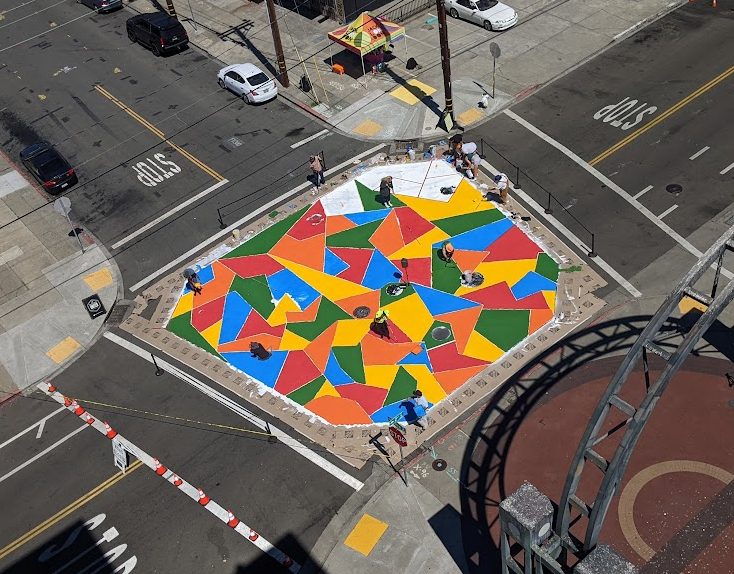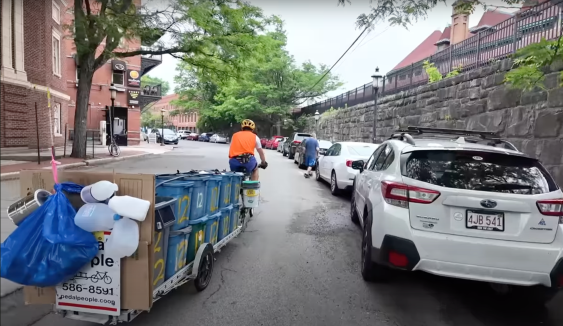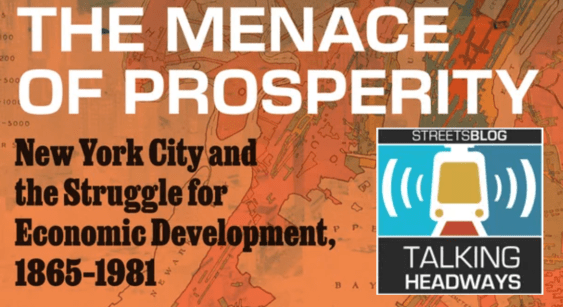 Save Muni Summit attendees sit town at the table together. Photo: Michael Rhodes
Save Muni Summit attendees sit town at the table together. Photo: Michael RhodesOne lesson from Saturday's Save Muni Summit and from MTA Board hearings jam-packed with Muni supporters in the past two weeks is that Muni riders are not an apathetic bunch. But if riders are willing to go to City Hall and to grassroots meetings, why isn't there already a politically powerful transit constituency in San Francisco?
The answer may lie in the sheer diversity of Muni's ridership, which is hardly less heterogeneous than the city itself. While everyone wants better Muni service, Muni riders disagree -- often vehemently -- on how to accomplish that. The Save Muni Summit sought to figure out which causes unite riders, and in the end it was a first step towards that goal.
Sarah Sherburn-Zimmer, a tenants' rights organizer who is part of the ad-hoc Transit Not Traffic (TNT) coalition that helped pass Proposition A in 2007, told the assembly at the Save Muni Summit that organizing the groups comprising TNT could be exasperating, but is the only way to develop political influence.
"We weren't going to agree on everything, but we needed each other," she said. "We could work on things we agreed on, and work separately on things we didn't agree on. But we agreed on funding."
Sherburn-Zimmer's speech was one of several that kicked off the summit with lofty and conciliatory messages. When the introductory speeches gave way to a public comment period, the fissures and distrust that have made organizing so difficult came back into plain view.
Perhaps the greatest rift is over the Central Subway. The summit's organizers sought to avoid focusing on the subway since it has strong support in Chinatown and from some transit advocacy groups, including Rescue Muni, but is bitterly opposed by many other transit advocates, including the group Save Muni, one of the summit's organizers. (Another summit organizer, TransForm, has not taken a position, citing allies on both sides of the debate.)
While there were plenty of great ideas presented during the Muni Summit's public comment period, there were also some harsh tirades cast at fellow groups in the room. "How can we offer solutions when we're trying to build a community between passengers and drivers but oftentimes we're at war with each other?" asked Nora Calderon of the group People Organized to Win Employment Rights.
As a result of this lack of unity, Muni riders often present a voice
at City Hall that is loud but not clear.
But if the public comment period was a messy extension of an MTA Board meeting, the session that followed seemed to offer a lot more hope. Summit attendees split into nine groups organized by issue, like how to find more funding for Muni, how to improve bus service, and -- a last-minute addition -- how to reach out to more Muni riders in the future.
The result, compared to the public comment period, was a bit like witnessing a leap from one stage in biological evolution to the next: though there was vigorous debate and disagreement at the tables, people interacted, shared ideas, and ultimately focused on the actions that had broad support. When a representative from each group stood up and spoke before the full assembly, there were even hints of nuance and collaboration.
It wasn't perfect, but it was a mark of the approach that will need to define any successful coalition of transit riders.
Dave Snyder, who's organizing a nascent San
Francisco Transit Riders Union, summed up the challenge at the end
of the summit. "Just one of the conflicts that came up in people's
comments today is that it is important that everyone pay their fare and
that people don't get on the bus through the back door because that
means Muni is losing money; but (people also said) it's important people
don't get harassed if they can't afford Muni."
Some ideas, however, like an increased vehicle license fee and all-door boarding through a proof-of-payment system, showed wide support at the summit. Snyder said those were the kinds of issues the Transit Riders Union could focus on. "These are big things ... and I don't think we can win them unless there is a sense among public transit riders that we are in this together," he said.
Of course, Snyder will also need to help organize a more diverse group than attended the Muni Summit -- not for the sake of political correctness, but by political necessity. Snyder said he hopes to have a balance of organizations on the steering committee, including policy organizations, such as SPUR, Livable City, and Rescue Muni, community based organizations like the Chinatown Community Development Center, the Mission SRO Collaborative, and the Senior Action Network, as well as participation by the Muni operators union.
Though the summit didn't accomplish broad representation of Muni's ridership (for the most part, the room didn't resemble the diversity of ridership on a Muni bus), its format of educating riders on the issues and then having them sit down face-to-face to work out consensus positions might be the template that will define a politically powerful Muni constituency.





